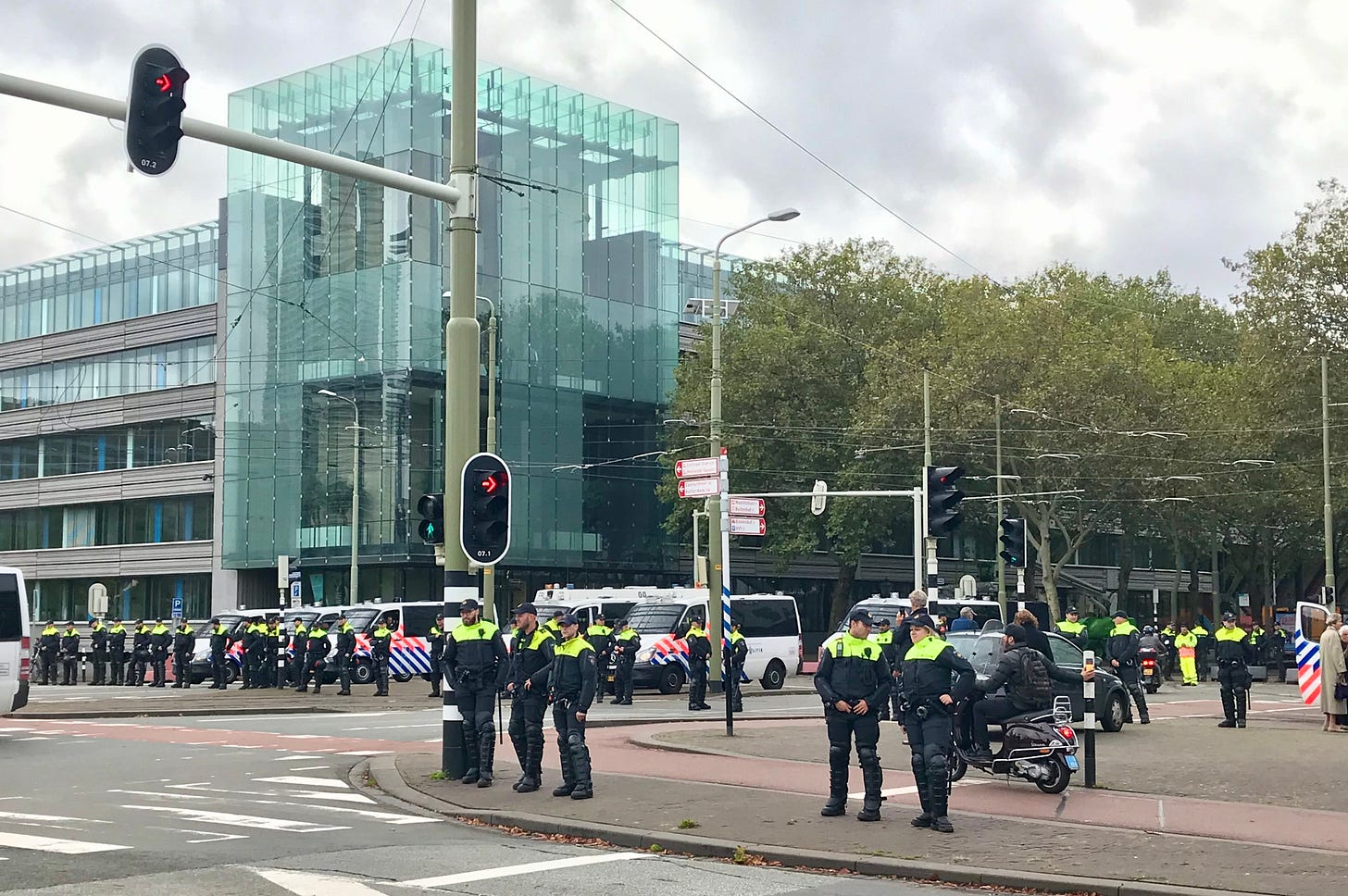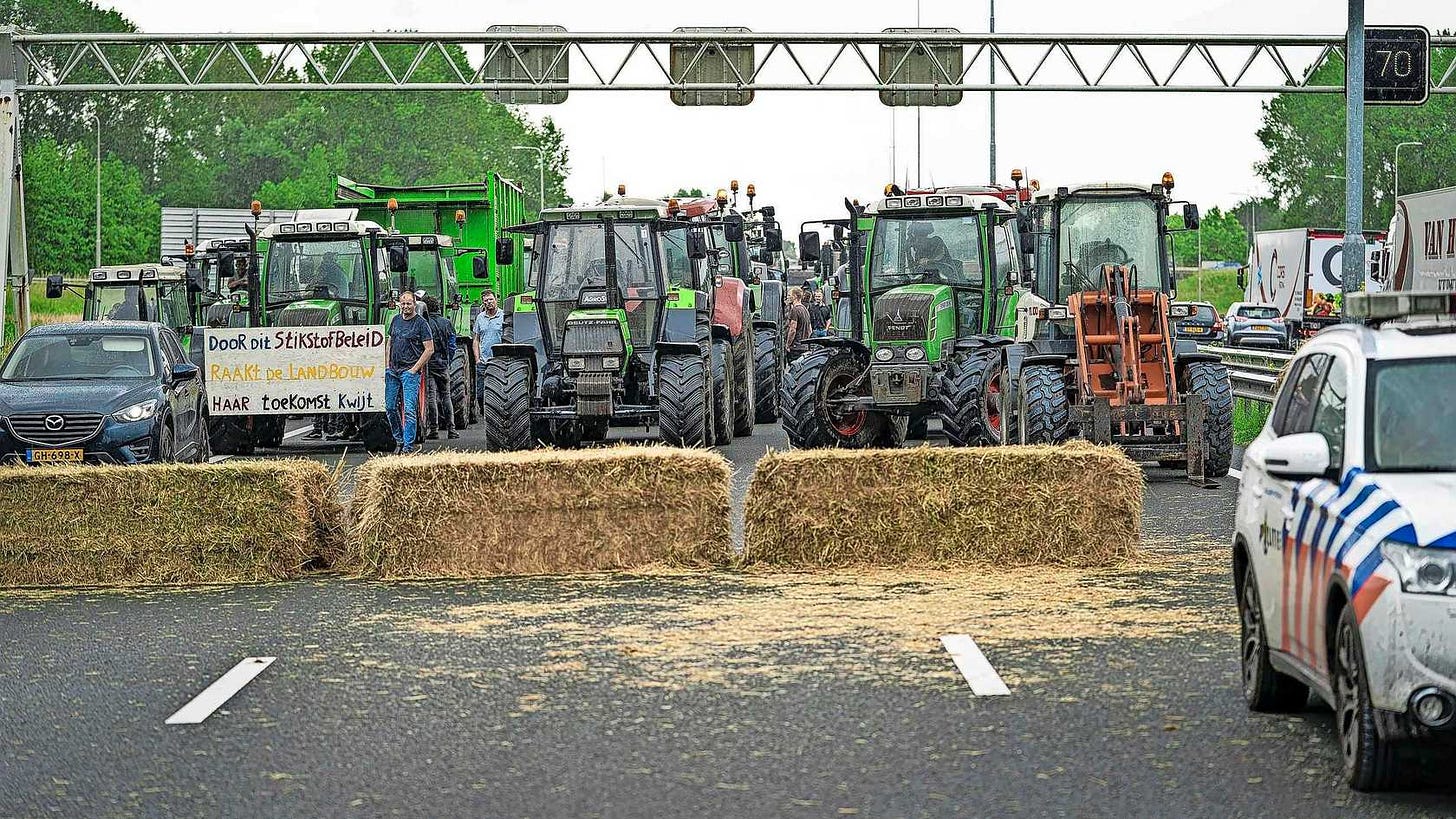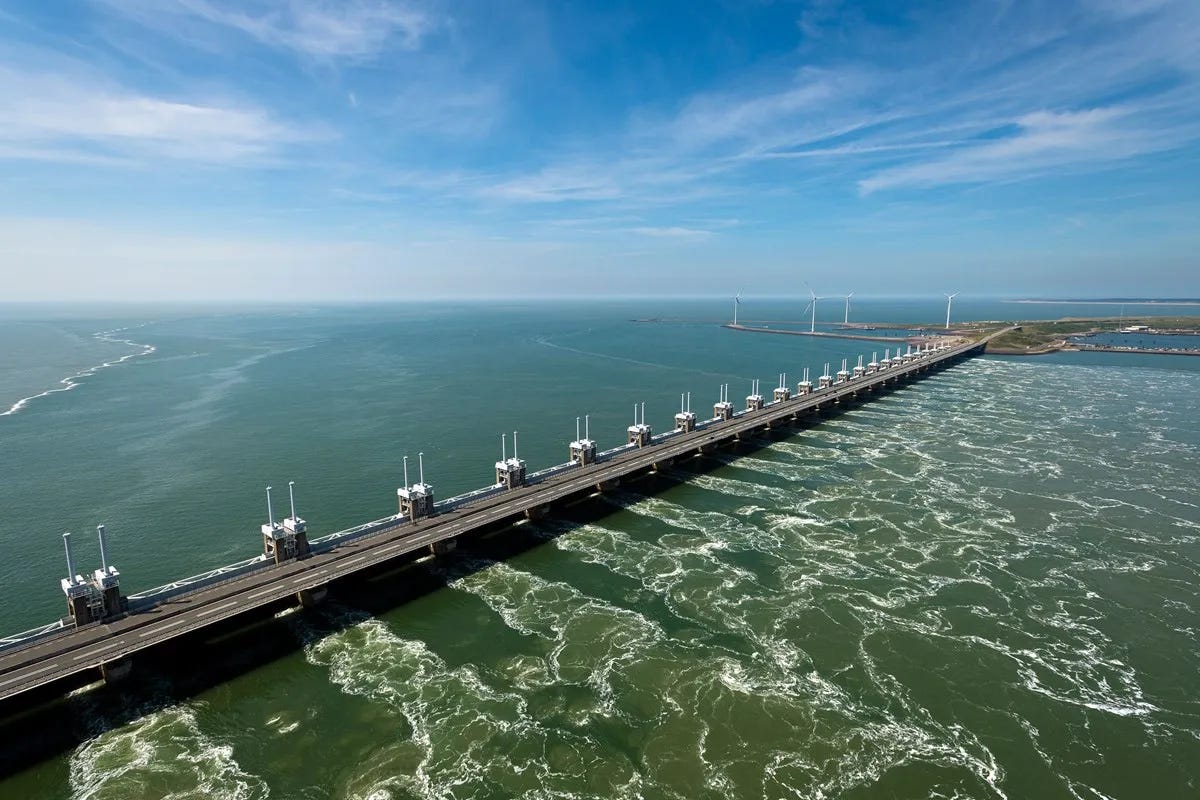The Dutch Farmers Revolt
Another major crisis shakes a nation usually known for its calm and consensus
It was weird to watch Dutch news this week. It was not so much the intense farmer protests: they were expected. But by Thursday the focus was on a sixteen-year old farmer’s son who had barely escaped with his tractor after a police officer started shooting at him. All parties had feared escalation after plans were announced to shrink the farming community by a third, in particular after a minister’s home was visited twice by angry protestors. But police actually using live ammunition was an altogether new level of engagement, the fact that the shots barely missed the boy saved the Dutch from further mayhem, for now. But how could this unravel so quickly, what on earth happened?
Background
Nitrogen is something that is part of the air around us. Nothing wrong with it, however if it combines with other oxygens or hydrogen it can create - in certain quantities - negative effects on nature and health. It helps grow plants, but too much nitrogen however is an issue as it suppresses biodiversity and that is where The Netherlands with its limited areas of natural beauty has run into trouble. The Dutch had in coordination with the European Union agreed to suppress nitrogen levels, but the government had not been terribly pro-active enforcing the agreed standards, so a judge ruled in 2019 that it was time to get on with it. Farmers apparently are responsible for 40% of local nitrogen emissions and as a result have been the target of accelerating government regulations. But it is not just farmers of course that pollute the air with excess nitrogen. Cars, airplanes, industry and yes, quite importantly, construction. The latter is a salient part as it was harder and harder to get construction permits for building in a nation that is facing a real housing crisis. Affordable housing is increasingly hard to get for the Dutch, and new construction lags demand by a wide margin. So from a number of areas the pressure to further reduce nitrogen started building up and the government launched some drastic plans a few weeks ago. It was cloaked under the “there is no alternative” language, a common and now well-known term that informs the receiving audience that any debate or attempt to compromise will likely be futile.
The Farmers
All of my international friends always talk lyrically about the cheese offerings at Schiphol Airport. The Dutch are synonymous with dairy and meat production and I often use it to explain the fact that on average we are the tallest people on earth: endless milk consumption from the day we were born. The sector is both culturally and economically significant, the typical Dutch lunch is a cheese or ham sandwich with a glass of milk. It has been that way forever.
But according to the plans now presented by Prime Minister Rutte the sector will need to shrink by about a third. That means forced buy-outs and sending families off the lands they have been nurturing for generations. The farmers have been under pressure long before this and have dutifully invested in sustainable solutions and innovation to meet nitrogen and all sorts of other requirements. They have done their bit and invested considerably to keep their operations in line with a changing world. They started protesting actively in 2019 and have been getting more organized in their efforts as their sector appears to be increasingly targeted. They rightly point to other sectors to contribute to reducing nitrogen emissions. And of course the farming community can also count on a lot of sympathy, which nation would go after the very people that produces its food? In no time stories about deep financial loss, trauma, even farmer suicides started to emerge. Surely, there could be other ways to address the nitrogen issue or find a way out by working on some sort of compromise.
It is to be pointed out that the majority of farm production is for export and that the Dutch are not really destroying their domestic food supply, even though that is an argument that has been made quite a bit by the pro-farm camp. Nor is the sector particularly impoverished, some 20% of farmers are millionaires, a percentage even higher if you factor in the pure cattle owning farms that own large tracts of land. And Dutch land these days is worth quite a bit, in particular in a nation desperate for room to build more housing. But it may not be just about money, it is equally or even more about outsiders terminating a way of life without any recourse open to the farming community.
Context
We need to see the events in the broader context of the drama that is Dutch politics today. PM Rutte has been in power for twelve years now and while he initially was lauded as the saviour of the nation following the financial crisis, his stock is down significantly. He is highly intelligent, dedicated, well-spoken and super effective at both governance and playing politics, but has increasingly grown aloof, and used all his great talents to straighten things out that are horribly wrong. And they are decidedly bad. I wrote about the ‘toeslagenaffaire’ where Dutch tax authorities ruined the lives of some 26,000 parents and 70,000 children(!), by deliberately targeting them for allegedly overpaid child benefits. It went after mostly minority and immigrant parents who were often forced into bankruptcy, in many cases children were removed from their parents as a result. A truly awful and still not fully resolved scandal for which Rutte managed to evade political responsibility. Then there was the Afghanistan debacle, missing phone texts (much like putting government e-mails on your own server and then losing them), zigzagging during Covid and more recently the appalling treatment of asylum seekers. I will spare you the scheming during coalition negotiations last year, but Boris Johnson’s scandals pale in comparison.
When in trouble Rutte would argue ‘of having no active recollection of it’ as a means to deflect a crisis. All with a smile. However skilful he maneuvered himself and his government through all of these affairs, it did one thing: the Dutch stopped trusting him. Going into the fight with the farmers was bound to be an uphill battle in any case, for someone who has lost confidence and is portrayed as having a sincere lack of human empathy is essentially a dead end politically. Needless to say, opinion polls project an electoral wipe out for Rutte and his team if an election were held today.
The trust - to the extent there was any - between government and farmers got further eroded when the farmers suggested to appoint a mediator, a request supported by a majority in parliament. True to form, Rutte put forward Johan Remkes, a retired politician who is well respected. However: Remkes is one of the architects of the very nitrogen policies he is to arbitrate on, and also happens to be one of Rutte’s closest political friends. So much for independent conflict resolution. The one opportunity this week to fix things was totally missed.
This Week
So while the government played a high stakes game, the farmers took a big risk too, too much disruption caused by protests will lead to a rapid a loss of public support. Dutch farmers are known to be both hardworking, self sufficient and law abiding citizens until they are pushed too far and this is what is happening right now. Protests have been going full force with farmers blocking food distribution centers, highways and border crossings. On Tuesday night near the city of Heerenveen as protests were winding down police took out their guns during an as yet unclear altercation. One officer shot at the now famous sixteen year old who was driving away from the police. The boy has been exonerated of any wrongdoing, the police officer meanwhile is off-duty and hiding. The incident tipped the balance of public opinion back to the farmers, but as of today it is unclear where things will go in the weeks and months ahead.
And Now
The farmers have announced to go on protesting. The mediator is on holiday (something sacred in Dutch society: you can’t interrupt that) and therefore not expected to start his work until after this summer. The issue has been discovered internationally as well and is often cast as the battle between the ‘common man’ and the ‘global elites’ much like it was during the pandemic. In a matter of time all sort of conspiracy theories have started doing the rounds, including the one that argues it is not about nitrogen at all and just a ploy to get land to build by kicking the farmers out while forcefully converting society to non-dairy diets.
The government and some media have seized upon this to define the farmer revolt as a hard right-wing exercise, much like the trucker protests in Canada earlier this year. But even the left-leaning ‘Party for the Animals’ who are not exactly farm friendly has sharply criticized PM Rutte over his handling of the affair. In its essence it is not a left or right issue. The leader of the Farmer-Citizen Movement which has one seat in parliament, Caroline van der Plas, is fiercely pro-farmer but quite moderate on other files. It is a debate over how to manage an ever populous nation on a small plot of land under increasing pressure in a way where everyone has a seat at the table and a say. It also is a function of tradition and breaking with a past that a large part of the population is deeply connected to. If a national government plays the ‘no alternative’ and ‘the EU is imposing this’ cards, things will inevitably snap. The flexibility of a functioning democracy appears to be no longer there. All sides of the political spectrum will now have to step up and work through this crisis in a reasonable way. No sign of this happening at the end of this week though.
Flashback & Conclusion
In 1986 the Dutch completed the Oosterscheldekering one of the world’s most unique and innovative sea storm barriers. It was not only an incredible engineering feat, but also a political victory. Much like the farmers today, fishermen had actively protested government plans. The plan was to construct the dam as a fixed barrier that would result in turning the closed off sea arm into a fresh water lake. It would mean the loss of fisheries and mussel farming businesses and devastate entire communities. It would basically end the fishermen’s way of life. The design and construction of the dam in the end was such that large movable doors could be closed in case of a storm, in all other cases they would be open and allow seawater to roll in and out. Both government and fishermen got what they want. A phenomenal compromise that attracted attention from all over the world as an unprecedented social and engineering feat. Now the world looks at the Dutch and wonder why this time they do not seem to be able to repeat the same magic.
Photos: top, I ran into the first farmers protests in The Hague in October 2019, lots of police around to prevent the farmers from marching on parliament. Center: the protests this week. Bottom: the Oosterscheldekering.





